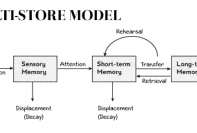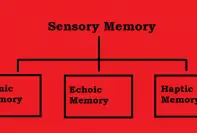The form of interference where new memories restrain the capacity to old information is called Retroactive Interference. The idea of retroactive interference is not at all uncommon. In fact, this has happened to everyone in different times in life. A simple example for this kind of interference would be when trying to learn two different things.
Example: You might have recently learned the names of different countries in Asia, and later on you might have learned the names of different countries in Africa. If you were now made to recall the names of countries in Asia, you might mix up the countries in Africa. The information seems to be jumping in front of each other and the memories jumble up.
This is just one of the examples of how retroactive interference occurs. Retroactive interference occurs when new memories hold back an individual from retaining past memories. When compared to proactive interference, experts have pointed out that the effects of retroactive interference maybe greater. While competition is the only thing that prevents recall of the memory in proactive interference, there is also unlearning in retroactive interference.
Retroactive interference has also proved to be significant in the long going debate about the process of forgetting. It helps to come to an important conclusion that
Forgetting is not simply a failure or weakness of the memory system, but rather an integral part of our stored knowledge repertoire. (Bjork, 1992)
Competition
Competition is the standard explanation for why Retroactive interference occurs. New associations compete with older information and more recent the associations are, harder it becomes for older associations to compete thus making it difficult to remember previous associations.
Context
Pitch Perception
Pitch perception has been used to investigate retroactive interference. It was found during the investigation that presentation of stimuli simultaneously in succession hampered the ability to recall older association. Massaro discovered that short term memory gets confused when auditory tones were presented successively. This caused retroactive interference to occur as new sound halted the retrieval of previously heard sound.
Motor Movement
Retention of motor movements is also affected by Retroactive interference. Learning a new physical activity inhibits retrieval of previously practiced physical movements. An example for this would be when a martial artist learns new variety of kicks. He is not able to recall the older physical movements as easily as the latest kick.
Word Tasks
When the items are similar, retroactive interference increases. Barnes and Underwood conducted an experiment where contestants were provided with two similar word lists. The ability of participants to recall the first word list decreased as they were provided with similar second word list. However, this finding also contrasts the control condition, as the participants did not seem to experience much retroactive interference when made to recall the first world list after a certain amount of rest time.
Examples
- A student is less likely to remember the information taught in the beginning of the year compared to that of the information taught later in the year.
- You learn a variety of dance moves. You are only able to remember the latest move.
- You change your phone number. You are only able to remember your latest phone number and not your older phone number.
- You have been taking French lessons recently. You try to speak in Spanish, which you learned previously, but you are unable to do so because French words keeps jumping in front of you and your memory is all jumbled up.



